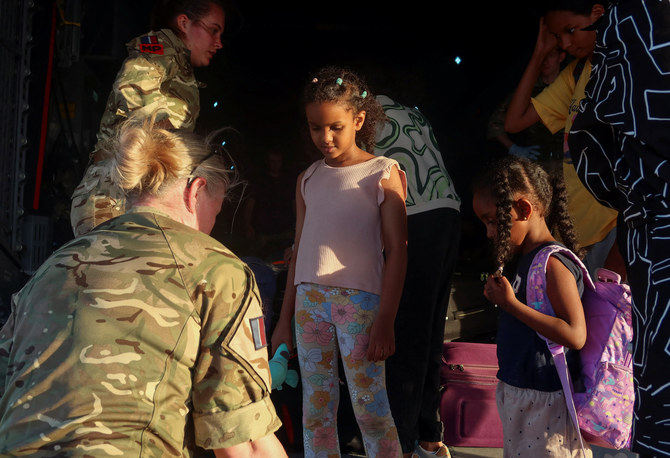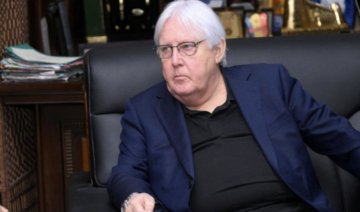LONDON: The UK Home Office has been criticized by immigration experts and members of the British Sudanese community for operating an “unashamedly racist” refugee system.
Despite the Home Office running refugee schemes for those escaping the war in Ukraine, it has refused to offer people fleeing the recent fighting in Sudan similar safe and legal routes to the UK.
The final UK-run evacuation flight from Khartoum flew out last week, and, with the possibility of a new scheme to deal with the fallout of the conflict highly unlikely, the lack of options offered by the government has stoked concerns that it has adopted a racist immigration policy, The Guardian reported.
In contrast, almost 300,000 visas have been issued for Ukrainians fleeing their country, and nearly 95,000 have been approved for a family scheme allowing Ukrainian refugees to join relatives in the UK.
Caitlin Boswell, policy and advocacy manager for the Joint Council for the Welfare of Immigrants charity, told The Guardian: “The racism of the UK’s immigration system couldn’t be more clear, with this government drawing (up) policies affecting people seeking safety along stark racial lines.
“At the same time, ministers are using unashamedly inflammatory and far-right language, whipping up hatred towards black and brown migrants.”
Meanwhile, the chief executive of the Migrants’ Rights Network, Fizza Qureshi, said: “The blatant refusal to provide the level of sanctuary and safety for Sudanese refugees in comparison to white Ukrainians has firmly exposed the unashamedly racist thinking at the heart of immigration legislation. They (the government) have created a segregated refugee system.
“It is clear that any shred of compassion for black and brown refugees has well and truly disappeared,” she added.
A member of the London-based Sudanese Community and Information Centre, Raga Ahmad, said that Sudanese people are being treated differently to Ukrainians.
“Colour and race should not matter when there is a war. The prime minister needs to answer: What is the difference between a Ukrainian refugee and a Sudanese refugee?” Ahmad said.
A spokesperson for the government said it was wrong to compare and set vulnerable groups against each other.
“Preventing a humanitarian emergency in Sudan is our focus right now,” the spokesperson said.
“Alongside the UK evacuation effort, we are working with international partners and the UN to bring an end to fighting. We have no plans to open a bespoke resettlement route for Sudan,” they added
The Refugee Council said the Home Office had so far refused to do more for Sudanese people despite having the power to do so.
“It has significant discretion it can use to grant visas, particularly in response to exceptional circumstances, but has decided not to,” said the council’s chief executive, Enver Solomon.
“We must prioritise creating safe routes for refugees, just as we welcomed refugees from Ukraine when Russia invaded last year.”


























